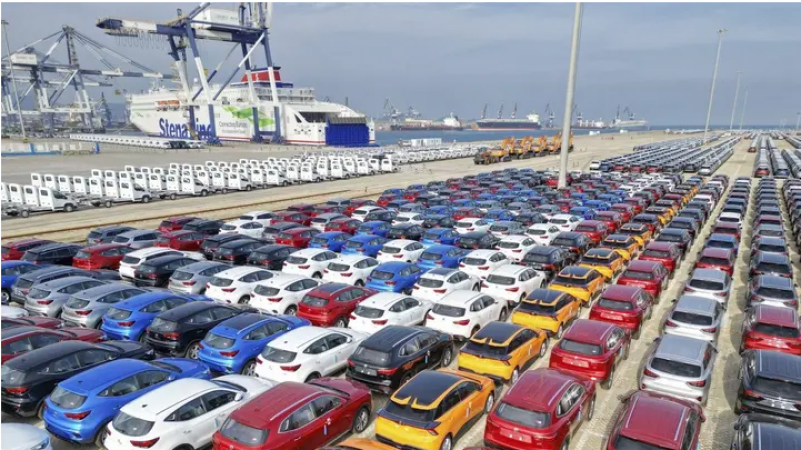
Beijing: Over the past year, tensions between the People's Republic of China (PRC) and Taiwan have increased to their highest point in decades. A recent report warns that if China attempts to blockade Taiwan, more than $2 trillion in global economic activity could be disrupted.
Although it has never ruled the democratic, self-governing island nation since the Chinese Communist Party (CCP) seized power on the mainland in 1949 after a 22-year civil war, the PRC views Taiwan as a rogue, breakaway province. Senior CCP officials, including Chinese leader Xi Jinping, have repeatedly refused to rule out using force to force Taiwan's "reunification" with the PRC.
The Rhodium Group, a research organisation that specialises in studies about China and analyses economic data, recently published a report on potential economic disruptions brought on by a conflict between China and Taiwan. Their team described the report as a conservative and incomplete estimate of the potential economic impact.
The scale of economic activity at risk from a conflict in the Taiwan Strait is enormous: well over two trillion dollars in a blockade scenario, even before factoring in international responses or second-order effects, according to Rhodium's researchers.
According to Rhodium's report, given Taiwan's significant involvement in semiconductor supply chains, the main economic disruption would result from its isolation from the rest of the world's trade. In addition to producing one-third to half of the less sophisticated chips that are essential in the manufacturing of items like cars, smartphones, and PCs, Taiwan is thought to produce 92% of the world's most sophisticated computer chips.
"A rough, conservative estimate of Taiwanese chip dependence suggests that companies in these industries could be forced to forgo as much as $1.6 trillion in revenue annually in the event of a blockade," Rhodium found. The full social and economic effects of a chip shortage on that scale are incalculable, but they would undoubtedly be catastrophic, according to the researchers, who also noted that second-order effects that affect industries dependent on Taiwanese chips could cause trillions more in economic activity to be disrupted.
Also Read: Downbeat Global Economy Doesn’t Mean Disaster
Rhodium also predicted that during a blockade, banks' willingness to grant credit to companies engaged in international trade, particularly companies doing business with China, would probably decline. According to the analysis, this dynamic could potentially cause more than $270 billion in trade between China and the rest of the world to be disrupted.
Similar to what happened before Russia invaded Ukraine, a blockade of Taiwan by China would probably cause investors in Chinese stocks traded on U.S. capital markets to sell off their holdings. Rhodium noted that the $775 billion in Chinese securities held in American markets as of September 2022 would put hundreds of billions of dollars at risk and could lead the CCP to enact capital controls to protect investors.
In addition, Rhodium estimated that a blockade could prevent up to $127 billion in direct investment from and into Taiwan, in addition to China's $100 billion in annual outbound investment and lending.
In his report, Rhodium said: "Together, our calculations indicate that, even without taking the effects of international sanctions or a military response into account, the global economic disruption caused by a Taiwan conflict would threaten well over two trillion dollars' worth of economic activity. This note looks at just a few of the potential disruption channels in a blockade scenario; the total scope of endangered activity would undoubtedly be greater. This figure should be viewed as a floor."
The State Department shared Rhodium Group's non-public analysis of the effects of a blockade of Taiwan with U.S. allies and partners to help them plan for such a possibility, the Financial Times reported.
Also Read: Punjab secures investments worth Rs.3200 cr in textile sector
The PRC responded to what it called a provocation by holding its largest-ever military drills around Taiwan, raising tensions to their highest point since the Third Taiwan Strait Crisis of 1995–96. The visit by then-House Speaker Nancy Pelosi, D–Calif., to Taiwan last August was the first by such a senior American politician since Speaker Newt Gingrich, R–Ga., visited in 1997.
A small taste of what would happen if China began a full-fledged blockade of Taiwan, those live-fire exercises involved missiles launched into several areas surrounding the main island of Taiwan that are astride key sea lanes and forced commercial shipping traffic to reroute for safety.